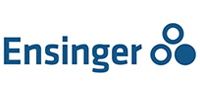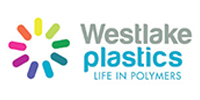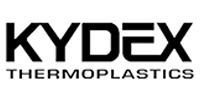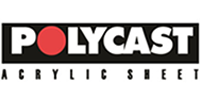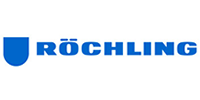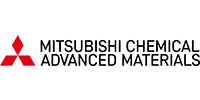Frequently Asked Questions

Q. Modern Plastics is LOCATED IN SHELTON, CONNECTICUT USA ?
A. You got that right! Modern Plastics, 88 Long Hill Cross Road, Shelton, Connecticut 06484
Q. I’m confused and need basic assistance, maybe even very technical assistance..!
A. Simply call us at (800) 243-9696 and speak with one of our technical plastics sales experts. We are happy to help!
Q. I’m a private individual and would like to make a purchase. Will you sell to me, and do I have to buy full size sheets?
A. We certainly do sell all of our plastics to individual consumers either through our “will-call” pick-up store in Shelton, Connecticut. We’ll gladly cut to size most any plastic materials you might need.
Q. Plexiglas® sheet – I’m worried that it is going to yellow on me after a few years. Also, what about scratching; should I be concerned?
A. All of the acrylic sheet Modern Plastics sells is manufactured with plenty of Ultra-violet stabilizers (UV) protection. This means that with proper maintenance of the Plexiglas acrylic sheet, it should never turn hazy or yellow. Of course, you’ll need to wash the Plexiglas with the proper cleaning solutions like our Novus® brand polishes and special Modern Magic® MicroFiber Cleaning Clothes, and to also be careful to never use such products as commercial brand “glass cleaning” sprays. Glass cleaning spray and other such products contain harmful microscopic abrasives that will cause fine scratching and eventual yellowing of the Plexiglas sheet. If you need an acrylic product that resists scratching, then ask us about our Lucite® SAR® abrasion-resistant acrylic sheet.
Q. I’d like you to build me a display case with special features, but I only need to purchase one -can you do this?
A. Absolutely -in fact, Modern Plastics can build you any size or style custom-designed Plexiglas acrylic case, to your exact requirements in no time at all. The quality and construction of our cases is so good, that the Smithsonian Institute in Washington uses them to display rocks from the Moon and other artifacts. And that same care and quality is extended to your individual display case as well. Just give us an idea of what you are looking for and our designers will do the rest.
Q. Is my 1/4″ plastic really a 1/4″ thick, and if not, how come?
A. It often depends on the type of plastic you buy. For example, most mechanical plastics like Delrin® and Nylon plate and rod are either planned or centerless ground to standard industry or ASTM tolerances. Most always, these materials will be oversize; -.000″ / +.025″, since the material will be machined down to the correct size. Some materials, are sold unplanned or ungrounded, or are molded and sold “as is”. These products can be greatly oversize, and no specific stated tolerance exists other than the material is “sufficiently oversize to allow for machining.”
In the case of acrylic (Plexiglas®) and polycarbonate (Lexan®, Tuffak®) sheet for example, these items are usually sold in “metric” gauges. For example, 6mm thickness acrylic sheet is sold as 1/4″ thick material (the actual thickness is .236″). Other examples are listed below*:
| 1/10″ = .098″ thickness | 1/8″ = .118″ thickness |
| 3/16″ = .177″ thickness | 7/32″ = .220″ thickness |
| 1/4″ = .250″ thickness | 3/8″ = .354″ thickness |
| 1/2″ = .472″ thickness | |
| * The thickness above may also have a “tolerance-range” which may leave the sheets oversize or undersize. | |
Q. Can you tell me what the difference is between “cast” acrylic rod, sheet and tube vs. “extruded” types?
A. Sheet, rod and tube in acrylic materials is available in both extruded and cast grades, the selection of which should be determined by the quality level desired when compared to cost considerations. When cast acrylic materials are manufactured it is manufactured from raw monomer which is cast or poured into molds. Once cured, the material is often ground and then re-polished to finish dimensions. Casting is the more expensive of the two processes, but yields a better quality product. Extruded acrylic materials on the other hand is manufactured by pushing acrylic pellets through a highly polished extrusion die to produce a finished product. Die marks and other slight imperfections may make extruded sheet, rod, and tube somewhat less desirable for critical applications. The process is less expensive however, and the quality is perfectly acceptable for most applications.
Q. Please explain how your shipping charges work.
A. Shipping plastics is not like shipping other standard UPS type products. For one, many plastics are indeed fragile items that require special packaging, boxing and handling to insure that they arrive in pristine, unscratched condition upon arrival at your door. There is not only additional packaging materials and special boxing that adds cost, but also the labor to prepare the packages for shipping can get quite lengthy. An example of this is when wooden crates must be assembled for encasing large sheets of plastic that would be easily damaged by even the most careful common carrier trucking company.
Also, trucking regulations in terms of how plastics are “classified” can also determine the rate of shipping an item. Some plastics might be very light in weight, yet consume lots of “air-space”, thus a higher corresponding shipping bill. As you can imagine, it is less costly to ship an item via UPS then with a trucking company and that is why we offer many of our items cut into “UPS’able” sizes. UPS won’t take a 10′ foot long rod, yet, but we’ll offer you 2 pieces of rod, 5′ foot long instead. You’re still getting the desired footage, but the item can be easily shipped in the 5′ foot length via UPS.
Another cost factor comes into play with International Shipments. Many countries now prohibit the use of wooden pallets coming into their country for fear that the wood could be harboring insects, disease, etc. Plastic pallets are now be required by most countries and these plastic pallets (since they are not commonly used right now) have a cost structure that is currently higher then wood pallets. Those costs must be passed on to the buyer when shipping good overseas. In time though, the cost of plastic pallets should equal that of wood as it becomes more commonplace.
Many of our rods are sold in 6′ or 8′ lengths, again, these items are easily shipped through UPS service. On the other hand, sometimes you need full rod lengths or full size sheets and that’s when you’ll see the “TBD” notice. It’s also when when our skill, knowledge and experience of 58-years of shipping plastics materials all over the world comes into play towards getting you the fastest and least expensive shipping means possible.
Lastly, there are the UPS and Trucking charges themselves that with the cost of fuel and transportation these days, seems to escalate more and more.
We believe the main message in all of this is for you, our customer, to know that Modern Plastics is exceptionally knowledgeable when it comes to shipping our products and we strive daily to insure that you are getting the fairest most economical means of receiving your product.
It is not our intention to gouge or profit from our shipping charges to our customers. Since the inception of our website and e-commerce activity, we have never had a shipment returned for damage (anywhere in the world!) while in transit. That, more than anything demonstrates the care we take to insure safe arrival of your plastic goods. For more information please read the SHIPPING POLICY at our On-Line Plastics Purchase Center.
DELRIN® is a registered trademark of E.I. du Pont de Nemours and Company.


